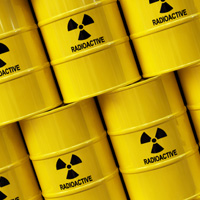
The MacArthur Foundation announced six grants totaling nearly $4 million for efforts to prevent nuclear terrorism and strengthen regional nuclear stability in South Asia. Specifically, most of these grants support projects to ensure that growth in nuclear power does not also increase the availability of fissile material that a nation or terrorist group would need to make a nuclear weapon.
"Enthusiasm for the clean energy benefits of nuclear energy is outpacing arrangements needed to limit the spread of nuclear weapons capability," said Robert Gallucci, President of the MacArthur Foundation. "A major goal of MacArthur's grantmaking is to integrate nonproliferation constraints into both U.S. nuclear energy policy and the global nuclear fuel cycle to minimize the prospects for theft or diversion of fissile materials, highly enriched uranium or plutonium.";
Five organizations have received new support to work specifically on issues related to fissile materials security and the nuclear fuel cycle:
- A $1 million grant to the Nuclear Threat Initiative will support a efforts to reduce the threat posed by nuclear weapons, including the launch of a nuclear materials security benchmarking project that will produce an index assessing the level of materials security on a country by country basis. The index will recognize states that have improved security and identify a path for those with ongoing shortfalls.
- The Center for Strategic and International Studies will receive $800,000 for a project to study U.S. and international fuel cycle trends. Based on the analysis, the Center will recommend short-, medium- and long-term steps that U.S. policymakers and other international stakeholders might take to produce a future international fuel cycle that is less proliferation-prone than current trends.
- The International Institute for Strategic Studies received a grant of $535,000 for a project to strengthen cooperation on nuclear security issues between China's policymaking and strategic communities and their Western counterparts.
- The Nonproliferation Policy Education Center will use its $400,000 grant to evaluate the security risks associated with nuclear power and to make recommendations for U.S. policy, aimed at reducing those risks. The project will support three panels of experts to produce a report identifying the risks associated with the spread of large civilian nuclear programs.
- The Center for Policy Studies in Russia-PIR Center will receive a grant of $600,000 to help increase the pool of Russia security experts and support policy research aimed at preventing nuclear terrorism.
Additionally, the Henry L. Stimson Center's $650,000 grant will help strengthen regional stability in South Asia. Specifically, the Center will use the grants to analyze adverse nuclear trends and recommend ways to establish deterrence stability in South Asia.
MacArthur has been making grants to reduce the dangers posed by weapons of mass destruction for more than 25 years. Early on, the Foundation supported research and track-two diplomacy between U.S. and Soviet policy experts and scientists, which helped facilitate nuclear arms control successes during the Cold War and laid the foundation for the Comprehensive Test Ban Treaty. In the early 1990s, MacArthur grantees developed the conceptual framework for Cooperative Threat Reduction programs that helped Russia and other former Soviet states reduce stockpiles and secure nuclear weapons and fissile materials. Today, through grants to policy research institutions worldwide, MacArthur aims to reduce global risks from nuclear weapons, with particular emphasis on preventing nuclear terrorism.



